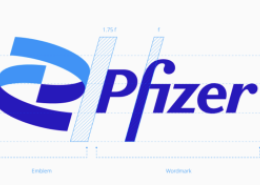Pfizer Reports Top-Line Results From Phase 3 Trial Of Lyrica (pregabalin) Capsules CV In Patients With Inadequately Treated Painful Diabetic Peripheral Neuropathy
(BUSINESS WIRE)--Pfizer Inc. (NYSE: PFE) announced today that a Phase 3 randomized withdrawal design study for Lyrica (pregabalin) in patients with inadequately treated painful diabetic peripheral neuropathy (pDPN) did not meet its primary efficacy endpoint, change in endpoint mean pain score relative to baseline. The study, A0081242, is a Phase 3b Multicenter, Double-Blind, Randomized Withdrawal Efficacy and Safety Study of Pregabalin in the Treatment ofmore...
(BUSINESS WIRE)--Pfizer Inc. (NYSE: PFE) announced today that a Phase 3 randomized withdrawal design study for Lyrica (pregabalin) in patients with inadequately treated painful diabetic peripheral neuropathy (pDPN) did not meet its primary efficacy endpoint, change in endpoint mean pain score relative to baseline. The study, A0081242, is a Phase 3b Multicenter, Double-Blind, Randomized Withdrawal Efficacy and Safety Study of Pregabalin in the Treatment of Patients with Inadequately Treated Painful Diabetic Peripheral Neuropathy.
Patients who had inadequate pain control while receiving a medication for pDPN were switched to Lyrica (150 or 300 mg/day) during a 6-week single-blind phase. Patients with ≥30% pain improvement were randomized to receive placebo or to continue treatment with Lyrica for the 13-week double-blind treatment phase.
665 patients received Lyrica in the single-blind phase of the study and had an improvement in single-blind endpoint mean pain score relative to baseline of2.2 points (0-10 scale). Of the 294 patients who had ≥30% pain response and were randomized, Lyrica-treated patients had a total improvement in endpoint mean pain score of 3.9 points relative to baseline; however, this was not statistically significant compared to placebo (3.5 point total improvement). Further analyses will be conducted on these initial results.
The results for this study indicate that the most common adverse events in Lyrica-treated patients were peripheral edema, dizziness, somnolence and upper respiratory tract infection when compared with placebo. The adverse event profile is consistent with that known for Lyrica.
Painful diabetic peripheral neuropathy is a form of nerve damage characterized by burning pain, pins and needles, or shooting pain in the feet and often in the hands as well. About 20 percent of people with diabetes experience pain resulting from nerve damage.
About Lyrica
Lyrica® is currently approved in 110 countries and regions globally. In the United States, Lyrica (pregabalin) capsules CV is approved for the management of neuropathic pain associated with diabetic peripheral neuropathy, pain after shingles, fibromyalgia and partial onset seizures in adults with epilepsy who take one or more drugs for seizures. Treatment with Lyrica may cause dizziness, somnolence, peripheral edema or blurred vision. Other most common adverse reactions include dry mouth, weight gain, constipation, euphoric mood, balance disorder, increased appetite and thinking abnormally. There have been post-marketing reports of angioedema and hypersensitivity. Like other anti-epileptic drugs, Lyrica may cause suicidal thoughts or actions in a very small number of people.
For Lyrica prescribing information, please visit www.lyrica.com.
Pfizer Inc.: Working together for a healthier world®
At Pfizer, we apply science and our global resources to improve health and well-being at every stage of life. We strive to set the standard for quality, safety and value in the discovery, development and manufacturing of medicines for people and animals. Our diversified global health care portfolio includes human and animal biologic and small molecule medicines and vaccines, as well as nutritional products and many of the world’s best-known consumer products. Every day, Pfizer colleagues work across developed and emerging markets to advance wellness, prevention, treatments and cures that challenge the most feared diseases of our time. Consistent with our responsibility as the world’s leading biopharmaceutical company, we also collaborate with health care providers, governments and local communities to support and expand access to reliable, affordable health care around the world. For more than 150 years, Pfizer has worked to make a difference for all who rely on us. To learn more about our commitments, please visit us at www.pfizer.com.
Pfizer Inc.
Media
MacKay Jimeson, 212-733-2324
or
Investors
Suzanne Harnett, 212-733-8009








